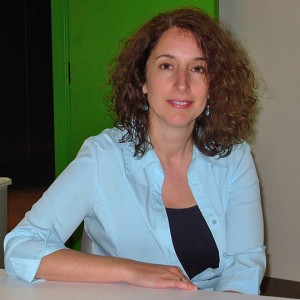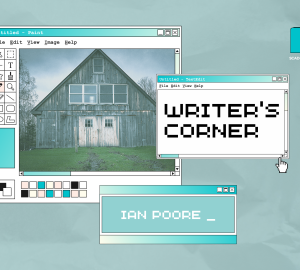
Dr. Stephanie Batcos, professor of liberal arts and writing at SCAD Atlanta, sees a major difference between other universities and SCAD. She considers the SCAD classroom a place where creative-minded students and professors can converse about process, as well as develop ideas through personalizing the experience of learning. Batcos said that taking risks with ideas and concepts can improve a student’s grade substantially, if the parameters are met with professionalism and concern for scholastic achievement.
“We have students that are far more creative, curious and more engaging, in terms of challenging ideas, as well as pushing the level of discourse in the classroom, because they come from such diverse points of view,” Batcos said. “In the traditional four-year college, the majority of students are probably liberal arts students, taking writing and literature courses just to meet a certain requirement. What we do here at SCAD is try to show how writing is integral to the creative process.”
Writing classes can be challenging for art students if they believe that writing has a prescribed formula.
“A lot of students are here, I think, because they feel as though they don’t quite fit in at a traditional university. There isn’t necessarily much room for creativity at that level. Concerning the anxiety many incoming students feel, Batcos says that “the first task is to get [students] to realize it’s not a matter of ‘is it right’ or ‘is it wrong’; it’s a matter of what do [they] really think?”
Batcos encourages taking risks with each assignment by displaying not only a superior understanding of the topic, but a unique voice.
Batcos received a B.A. in English from the University of Michigan and an M.A. and Ph.D., in English from the University of Delaware. She currently teaches courses in nonfiction, theory and American literature. Her published articles cover a range of topics such as authors Olive Senior and Edith Wharton, and the crossing points of travel writing, autobiography and fiction.
Her aim is to produce students who can think critically and express ideas pertinent to their personal creative philosophy, while engaging the material from a point of view that allows discourse and dialogue.
“The focus of the assignments is to help students figure out what they think from an artistic point of view, how to express it in writing and how to make their voice represent what they think and what they believe accurately,” Batcos said. “Writing towards self discovery.”
Over each quarter, students learn to build up a creative confidence that engages every area of study. Whether painting, printmaking, design or otherwise, the course is structured to reach across the curriculum and help students realize their individual creative development.
“[Students] come up with a thesis, build the five-paragraph essay around it, and for a lot of students who hate writing, they feel like the thesis is an alien object, but what I try to help students understand is that the thesis is a representation of what they think and what they believe. If [they] don’t believe in it, then they shouldn’t be writing it,” Batcos said.
A student’s essay should represent not only the depth of understanding attained through research and development, but it should also portray the student’s attentiveness to their own individuality. Focusing on grammar, punctuation and sentence structure is a given requirement.
“Hopefully, [students] come to realize that their thesis is their truth. Suddenly [they] become more invested in what they are writing about,” Batcos said.
Interpreting information through exclusive interest in the material, Batcos suggested, can demonstrate a higher level of awareness to the professor.
Batcos proposed picking a topic that is of personal interest and narrow enough of a subject to allow room for specification and analysis. She also encourages introducing a creative edge that exemplifies student individuality.
“A ‘B’ essay is still above average. It’s doing more than the majority of essays are doing. An ‘A’ essay is exceptional. It’s showing a superior skill level, and there’s uniqueness, fluidness in the way paragraphs and sentences are put together,” Batcos said, on the difference between an A and a B. “An ‘A’ essay is going to be one that as I’m reading it, for a moment or two, I forget I’m evaluating because I just get taken with the writing, and it’s the realization that the student is fully in charge of what they are trying to express.”
According to Batcos, the important thing when writing an essay is to convey a mastery of the subject by interjecting a level of individuality. Take risks, she encouraged, and allow the writing to become an extension of the self. As creative students, the task is to present an original concept backed by in-depth research and artistic intuition. There is nothing inspiring about playing it safe.


























